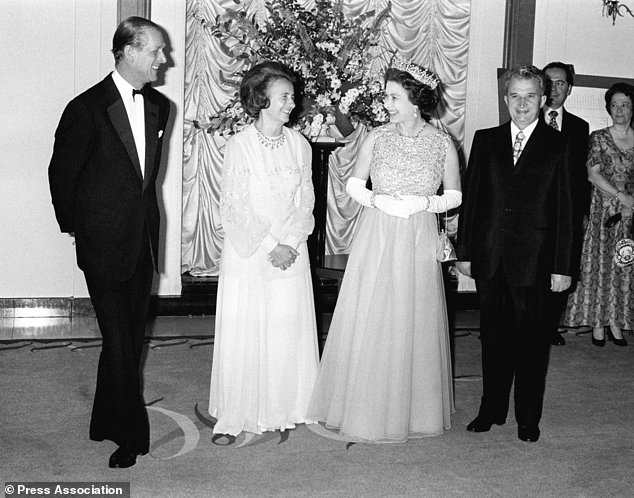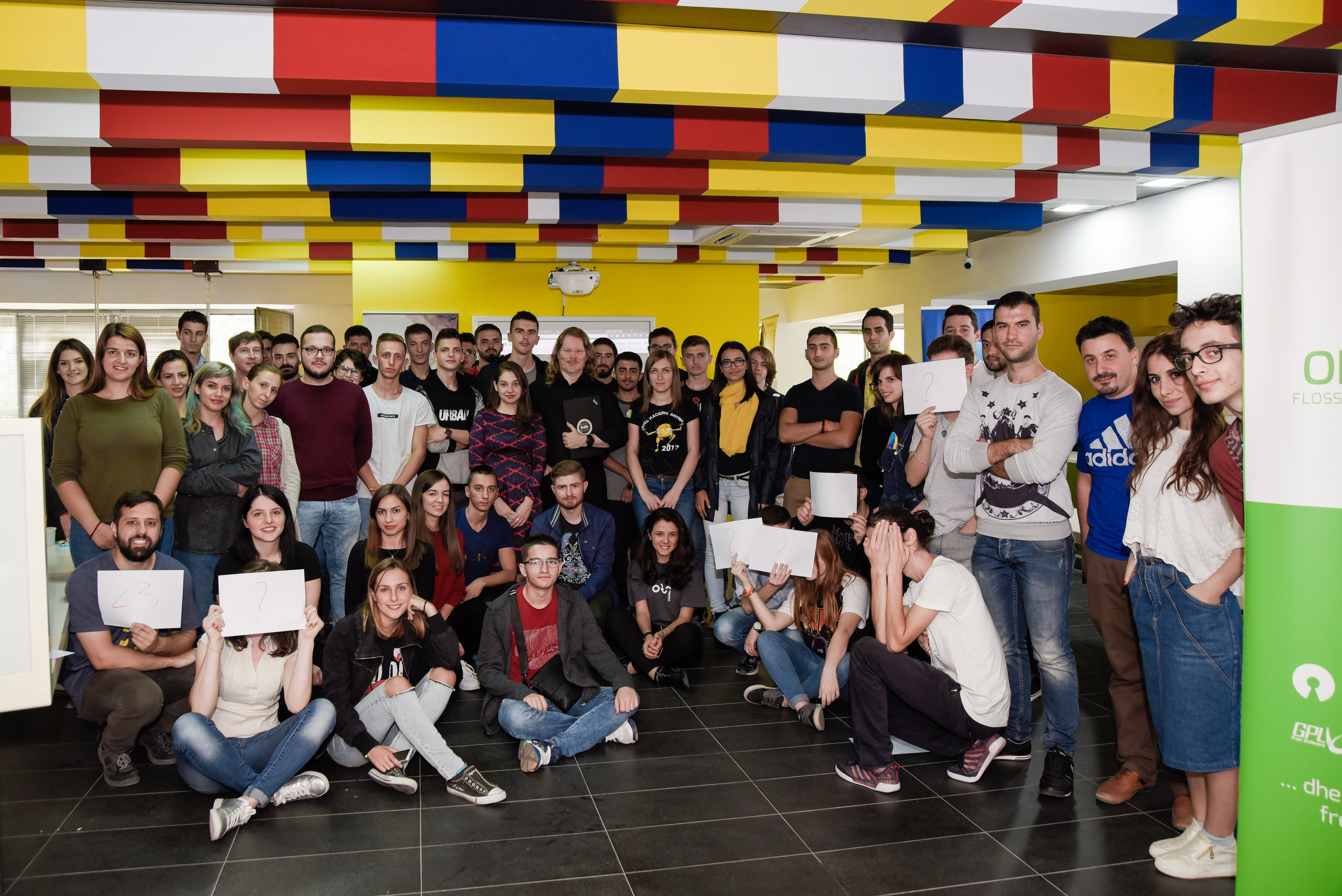One of the essential steps that we take when packaging software for major Linux distributions is finding the names of the copyright holders and ensuring that these are preserved in the final package of the software.
Debian even took this a step further by requiring developers to spend extra effort extracting the names from source code and copying them into machine readable debian/copyright files that are convenient for large corporate users. Some have come to see this as an extra barrier to new contributors and new packages.
While the administrative effort of processing this information is important, how seriously do we take the principle and philosophy of it?
Giving people credit for their work doesn't only support the person who made the contribution, it also shows everybody else that their contributions will be treated with respect. The opposite also holds true: if leaders fail to give credit for somebody's contribution or they give credit to the wrong person it can be demotivating for everybody else.
Non-coding contributions
The same principle holds whether it is for source code or other contributions, like investigating a bug, mentoring or doing administrative work.
Many people have been puzzled by the email from former Debian Project Leader (DPL) Chris Lamb where he fails to acknowledge the work another volunteer contributed as admin and mentor in GSoC over many years. Furthermore, reading emails like Lamb's, you might come to the conclusion that other people, including Molly de Blanc, who it is alleged Lamb was secretly dating, did the work in GSoC 2018. Yet people who participated in the program didn't feel that is accurate. Why has Lamb failed to recognize or thank every volunteer for their contributions?
At first, the problems in Debian's GSoC team were puzzling for many of us. The allegation that Molly de Blanc was Lamb's girlfriend shines a new light on Lamb's email. Neither of them declared their relationship to other members of the GSoC team, it was a complete shock for most volunteers when we heard about it.
Please note we don't wish to encourage anybody to vilify either of these people for their secret romance: the issue at hand is the effect of the relationship on the way they performed their roles and the impact on other volunteers.
The Mollamby affair, even if it is over and Lamb didn't run for the leadership again, leaves many people wondering if their work will be recognised fairly.
This type of thing is not without precedent. Consider Elena Ceaușescu, the wife of former Romanian dictator Nicolae Ceaușescu. 17 December, the day that de Blanc's Anti-Harassment team ordered the Debian Account Managers to terminate a developer without any hearing or due process, was the anniversary of the day the Ceaușescus ordered the military to shoot their own citizens.

It is alleged that Elena Ceaușescu obtained her Ph.D and pursued her career in chemistry by having her name put on other people's work. They even pressured the British Royal Institute of Chemistry to make her a fellow in exchange for business contracts. Is there any organization money can't corrupt?
After the Ceaușescus were overthrown and executed, people came forward and revealed the truth:
We were told: no paper could be written or published, no conference delivered publication could leave ICECHIM without Elena Ceausescu’s name appearing in first place [...] we were producing papers with words which, we knew, she could not pronounce, let alone understand (Corciovei, quoted on p184, Kiss The Hand You Cannot Bite, Edward Behr, Villard Books, NY, 1991)
A Google Scholar search finds many of those papers, Ceaușescu always appearing ahead of other names, just as de Blanc's name now appears at the top of the Debian Outreach team delegation. An effective admin in this program needs to be able to provide coaching and backup to the mentors, yet de Blanc does not have any prior experience mentoring any student in Debian. She never even wrote any code. Meritocracy, or a cynical power grab by the leader's girlfriend?
As Stalin famously put it:
power alone is not enough, you need to gain prestige
The Ceaușescus got this point: they were the first communist dictators to get themselves invited on a state visit to the UK.

The feeling that the DPL's girlfriend takes credit from somebody like Daniel Pocock who mentored three interns, spent a week visiting the interns in Kosovo as well as doing an admin role is really quite demotivating for most ordinary volunteers like us.
For any organization to be healthy, it is essential for the leader to be setting a good example of giving credit to the people who deserve it. How can we expect new package maintainers to put effort into the tedious process of writing machine-readable copyright files if the leader himself can't give credit to somebody who made a major contribution to a program like GSoC over six years? How will other developers in the wider community feel now that these allegations about the former DPL and his girlfriend have emerged?
Some people would rightly point out that the regime of Nicolae and Elena Ceaușescu was one of the most barbaric in Eastern Europe and that as well as benefiting from nepotism to advance her chemistry career, Elena Ceaușescu had been involved in propaganda and torture. Despite de Blanc benefitting from the work of others and quickly gaining titles for herself, it wouldn't be fair to compare Mollamby to the Ceaușescu regime if phenomena like torture were absent from Debian. We'll get to that.
Building a smear
Sadly, the new DPL Sam Hartman has continued in the same vein as his predecessor. Hartman started a thread on debian-project suggesting somebody adopt the RTC services Pocock introduced to Debian. It looks like he didn't contact Pocock before doing that. Hartman doesn't give any recognition for the effort Pocock put in to get these things up and running in the first place: he doesn't mention his name at all. It is as if he wants to make him vanish like Arjen Kamphuis.
In fact, Kamphuis and Pocock had collaborated on a number of activities in the Balkans before Kamphuis' disappearance, here is a photo from the Tirana cryptoparty:

Most organizations would provide volunteers with some empathy and support at the time that one of their collaborators or associates disappears like that: Debian may be the first to take inspiration from such a disappearance.
Pocock has been responsible for a sizeable amount of the upstream development of those RTC services (reSIProcate and JSCommunicator WebRTC projects), release management, packaging (both Debian/Ubuntu packages and Fedora packages), documentation and managing the successful deployment to production in Debian's rtc.debian.org service. He did the same to create the FedRTC.org service for Fedora users, running the same stack as Debian but linked to Fedora SSO.
It wouldn't be consistent with the message of this blog if we didn't also emphasize that deploying and running services like that in production requires effort from a lot of other people too. For example, members of the Debian System Administrator (DSA) team who helped integrate all the services with Debian's user data (Luca Filipozzi helping at the most critical stages) and the Prosody project lead, Matthew Wild and package maintainers like Victor Seva who do most of the work on the XMPP side of rtc.debian.org. Not only have all these people made important contributions, but it also has to be acknowledged that the successful deployment of the services in a large organization like Debian is also a credit to how well everybody worked together as a team.
For two successive leaders of the Debian project to fail to recognize sizeable contributions like these is incredibly toxic. It is inconsistent with the basic principles we follow crediting people for their code in our packages and therefore it is unfitting for the leader to behave this way. If a Debian Developer removed the main contributor from a debian/copyright file, they would attract strong criticism. Why does the leader get away with such behaviour?
Is there torture in Debian?
Pocock revealed there had been a number of significant issues in his private and family life that impacted his voluntary contributions to Debian over the last couple of years.

In January 2018, he wrote to Molly de Blanc, as a fellow member of the Outreach team, advising he couldn't fully commit to the GSoC admin role but would help out temporarily to get Debian GSoC 2018 up and running. July 2018, he sent another private message to de Blanc, Lamb (as DPL) and Stephanie Taylor (Google) informing them that extraordinary personal circumstances had limited his role. In August 2018 he thanked the rest of the team and advised he wouldn't participate in 2019. No volunteer should be obliged to give any more details than that.
Yet people weren't happy with that. He reported that people sent him threats and insults and they saw it as an opportunity to start gossip. Lamb has tried to evade responsibility with the excuse that gossip sent in private emails and not a public mailing list is acceptable. Is that the attitude of a mature leader or does it sound more like a fudge constructed by a mischievous child?
By forcing people to question a volunteer's absences, Lamb forces the volunteers to recall and explain to people some of those private circumstances. This ruthlessly degrading aggression from Lamb compromises the privacy of other family members who may not wish to be named or discussed. It is irrelevant whether the gossip messages fit Lamb's childish definition of public or not.
In Pocock's case, one of the reasons for his absence was the death of his father.
At a time of pain and grief, is it appropriate for the leader of Debian to put such immense pressure on a volunteer as suggesting they explain all that and put their membership up to a vote of the whole Debian community?
Is it even human for him to dismiss such significant loss as minutiae?
But he did those things, the hideous messages relayed to through a puppet, Enrico Zini of the Debian Account Managers.
There is no hint of anything positive or constructive in those messages. Their only purpose appears to be the pursuit of some sadistic pleasure, believing shame would prevent anybody from calling out Lamb's bullying.
Is it acceptable for Joerg Jaspert to denounce multiple volunteers in front of a journalist? Yet he did that too.
Who is harassing who?
After Pocock informed Lamb about his circumstances in July 2018 and completely resigned from the GSoC team, Lamb's decision to seek political mileage from that and sustain a state of hostility with threats and constant gossip may be one of the most brazen examples of harassment ever seen in a free software community. But if the leader's girlfriend is an "Anti-harassment" team insider, maybe he can get away with harassing volunteers.
When other people hear what has been happening in Debian recently, it brings unreserved scorn. People have compared the tightly coordinated process of threats and defamation to the work of gangsters and the mafia.
One reader of this site has commented that it looks like the workings of Scientology, who also use excommunication and demotions to maintain control through fear. Her brother had joined that organization some years ago and disconnected her, which is scientology-speak for pretending she doesn't exist. Sam Hartman's recent emails asking somebody to take over Pocock's work are eerily similar. Together, the "Anti-harassment" team and Debian Account Managers have parallels with Scientology's notorious Sea Organization. For Lamb to impose that type of psychological violence on a volunteer in a time of grief is horrendous.

Even GSoC interns have noticed that another Debian Developer's recent apology email to the debian-project email list looked like a forced confession. An observant reader compared it to Mao's notorious Thought Reform programs.
Yet if Norbert Preining can be broken down in just three months of gangster-like blackmail, threats, defamation and humiliation, take a moment to imagine what it is like being subject to Mollamby's mind control games for over a year while also dealing with significant personal tragedy and grief.
If you have enough empathy to understand, you may well realize why normal people feel completely comfortable comparing Chris Lamb and Molly de Blanc to people like Nicolae and Elena Ceaușescu. If not, go and read this article on methods of psychological torture and see how many you can relate to the practices people have complained about in Debian recently. The repetitive assertions that some people are not real Debian Developers, for example, are a form of gaslighting, number 12 in that torture-master's recipe book.
Here is what Psychology Today says about the practice:
Gaslighting is a tactic in which a person or entity, in order to gain more power, makes a victim question their reality. It works much better than you may think. Anyone is susceptible to gaslighting, and it is a common technique of abusers, dictators, narcissists, and cult leaders. It is done slowly, so the victim doesn't realize how much they've been brainwashed.
The way a victim would feel reading Hartman's email and the subsequent thread is much like what an artist or painter would feel if somebody broke into their studio and set their work on fire. Multiple people doing that deliberately during a time of pain and grief is far worse than the act of a lone vandal.
Have you witnessed abuse in free software communities?
Our advice to anybody else witnessing or experiencing abuse like this is simple: speak up, don't bottle it up or leave it to somebody else. Don't assume the leaders or some distant community "safety" team will handle it, as we've seen in Debian, those teams have their own agendas. Speak to people face to face, starting with those you trust most.


